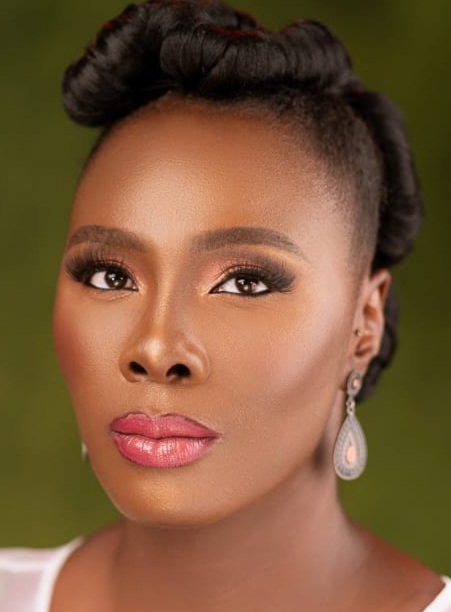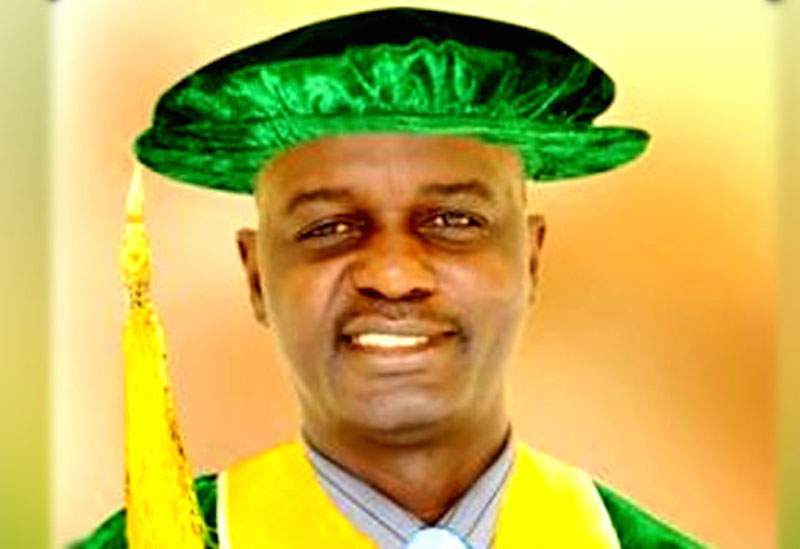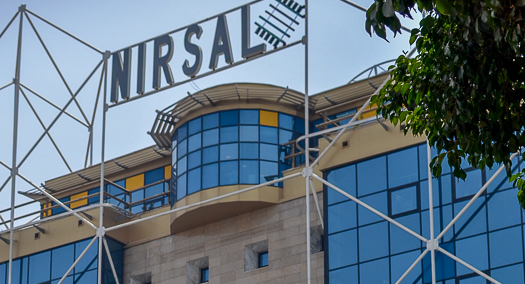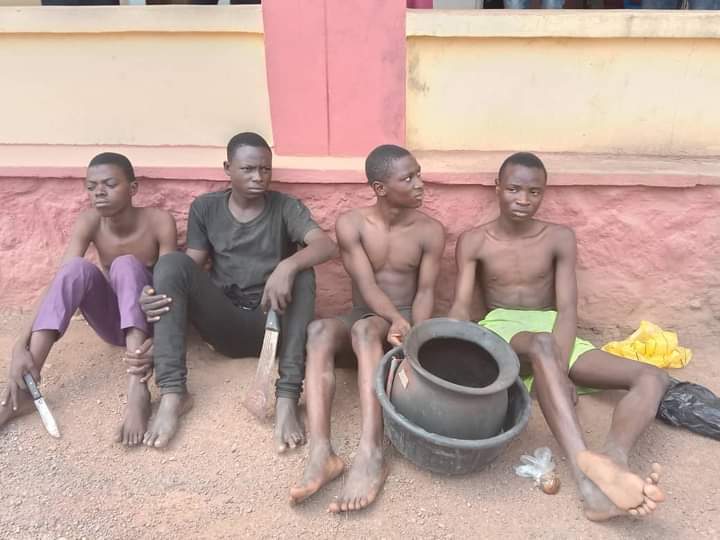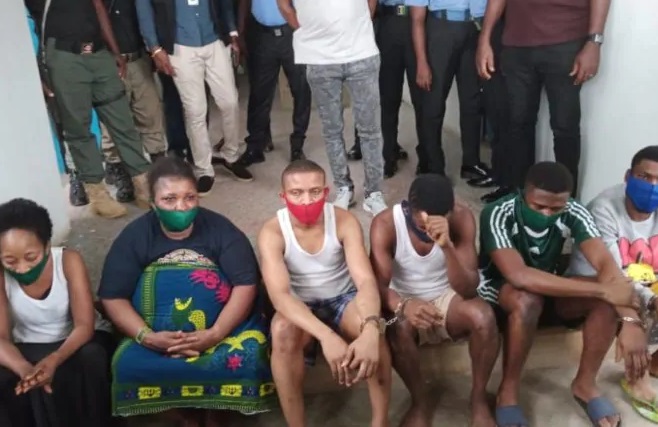Nigeria ranked poorly in Transparency International’s 2021 Corruption Perception Index (CPI) Report. The CPI ranked 180 countries and territories and provided results on a scale of 0-100. Zero for highly corrupt and 100 for very clean. According to Transparency International (TI), corruption levels are predominantly stagnant worldwide.
With a ranking of 154 out of 180 countries, Nigeria is the second most corrupt country in West Africa. This ranking is an indicator that corruption is getting worse in Nigeria and the government’s claims of reducing corruption are possibly false.
To determine the CPI of countries and territories, Transparency International measures the manifestations of public sector corruption. Bribery, diversion of public funds, officials using their public office for private gain without facing consequences, the ability of governments to contain corruption in the public sector, excessive red tape in the public sector that may increase opportunities for corruption, and nepotistic appointments in the civil service are some of the manifestations measured to determine CPI. Others are laws ensuring that public officials must disclose their finances and potential conflicts of interest, legal protection for people who report cases of bribery and corruption, state capture by narrow vested interests and access to information on public affairs/government affairs.
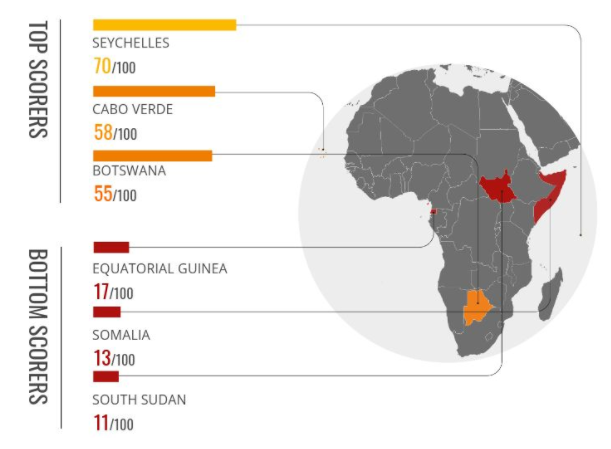
Going by these criteria, little wonder that Nigeria performs abysmally on the CPI. Sub-Saharan Africa is not doing well with curbing corruption. With an average score of 33 out of 100 and with 44 out of 49 countries assessed scoring below 50 on the CPI, we need a quick intervention in the region before corruption destroys us all. The infringement of the rights to express opinions, access to information, rights to assemble, and conflict across the region further exacerbate the corruption crisis. Sub-Saharan Africa is in dire need of open government practices, inclusive governance policies, and aggressive anti-corruption reforms. The figure below illustrates the top and low scorers in Sub-Saharan Africa.
Advertisement
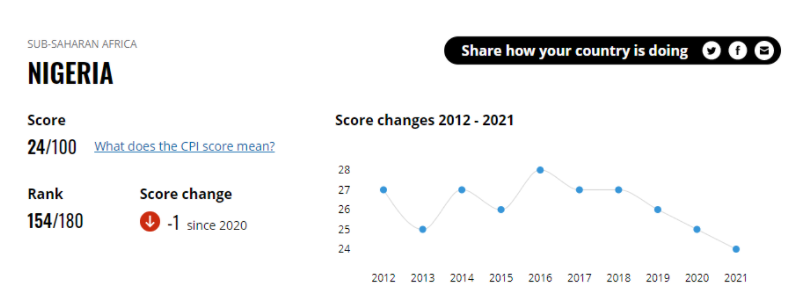
From the graph above, Nigeria’s ranking has steadily dropped since 2017. Nigeria’s score of 24 out of 100 indicates that we have a corruption problem in Nigeria and the levels of corruption in the country are increasing. Things are getting worse. Threats of restrictions face civil society organisations that dare to hold the government (national and sub-national) accountable. Undemocratic regulations and punitive fines that interfere with the media’s ability to dispense information to citizens contribute to the corruption malady in Nigeria.
True to the character of Nigeria’s leadership, instead of acknowledging that a corruption malaise exists and working towards curing this disease that continues to take lives and destroy us, the attorney-general of the federation, Abubakar Malami, criticised the ranking, saying that Transparency International lacked the basis to rank Nigeria. Bear in mind that the CPI is the most widely used global corruption ranking in the world. It measures how each country’s public sector is perceived.
He went further to state that TI’s ranking does not support empirical evidence on efforts made by the federal government. This statement begs to question, what does Malami mean by empirical evidence? What does this government see that we fail to see? What institutional efforts has this government been placing since 2016 that is yet to be manifest for the average citizen to benefit from? On the other hand, do these government officials live in a different Nigeria? President Buhari’s government representatives consistently boast of their anti-corruption efforts but one wonders where and when these efforts are manifest.
Advertisement
Corruption is endemic in Nigeria. On one hand, democracy in the country is hanging by a thread, on another hand, human rights violations occur with the denial of access to justice. In addition, Trading Economics reports that inflation is expected to rise to 15% at the end of this quarter. The state of public health and education is appalling. Daily, lives are lost to the gaps that corrupt practices create. More Nigerians slip further into poverty because of corruption. Corruption is cancer that destroys and kills everything it touches. Sadly, several citizens do not completely grasp the impact corruption has on their lives. We have become accustomed to providing our security, electricity, water, education, health, and everything else that we have no expectations from the government. Yet our taxes are regularly deducted, natural resources are extracted from our communities, and several other payments are required of us, depending on what arm of government you are engaging with.
How do we explain the impact of corruption at the granular level, how do we get citizens interested enough to understand that corruption is more than someone’s new car and new houses? Citizens must understand that it is in the deprivation that a child in northern Nigeria faces. It is in the mother who loses her life during childbirth. It is in the father who dies in a road accident. It is in the banditry, insurgency, and conflicts we regularly contend with. It is in the delayed justice that people face. Corruption is all around us but we have become accustomed to injustice and inequity that we would rather manage than confront the situation. Public officials barely declare their assets and when they display questionable wealth, we commend and reward them. The government’s approach of acting like an ostrich by hiding its head in the sand is not helping either.
However, the first step to solving a problem is to acknowledge the existence of the said problem. Firstly, maybe it is time to accept that President Muhammadu Buhari is not the anti-corruption champion he claims to be. If that is the case, perhaps we should not expect him to do anything tangible to tackle corruption considering that his leadership of the country ends in 2023.
Secondly, there has to be a consequence for crime, injustice, and bad behaviour in Nigeria. The reason why other countries thrive is that their justice systems work. If criminals were penalised quickly and court processes were faster without outside interference, I believe that we would see a significant reduction in corruption. Penalising crime will address the impunity that causes corrupt practices to fester. Per Transparency International’s report, upholding human rights is also critical to the fight against corruption.
Advertisement
Jacob Zuma, the former South African president, was the first African leader to be convicted for a crime after leaving office. We need more prosecutions and convictions in Sub-Saharan Africa to deter corruption and corrupt practices. We also need to strengthen our democratic institutions. With election season ahead of us in Nigeria, it is time to engage political office contenders on what their intentions for the country are. Enough of them making promises they do not intend to keep. Otherwise, we may perhaps be igniting the keg of gunpowder we sit on in this country.
Tsema Yvonne Ede is a lawyer with several years’ experience in human rights, conflict & dispute resolutions, governance, and gender. She can be reached via [email protected]; [email protected]
Views expressed by contributors are strictly personal and not of TheCable.
Add a comment
